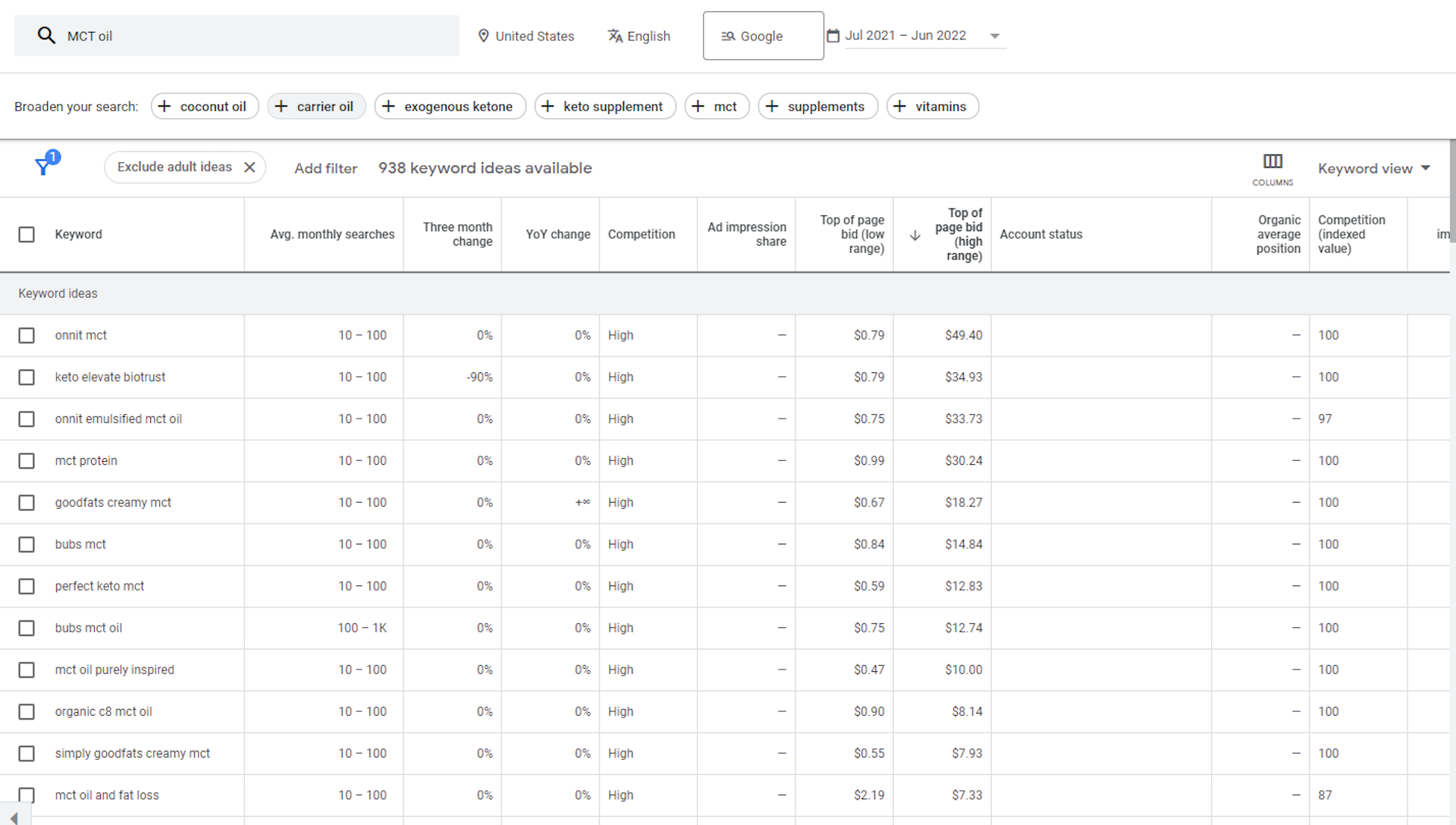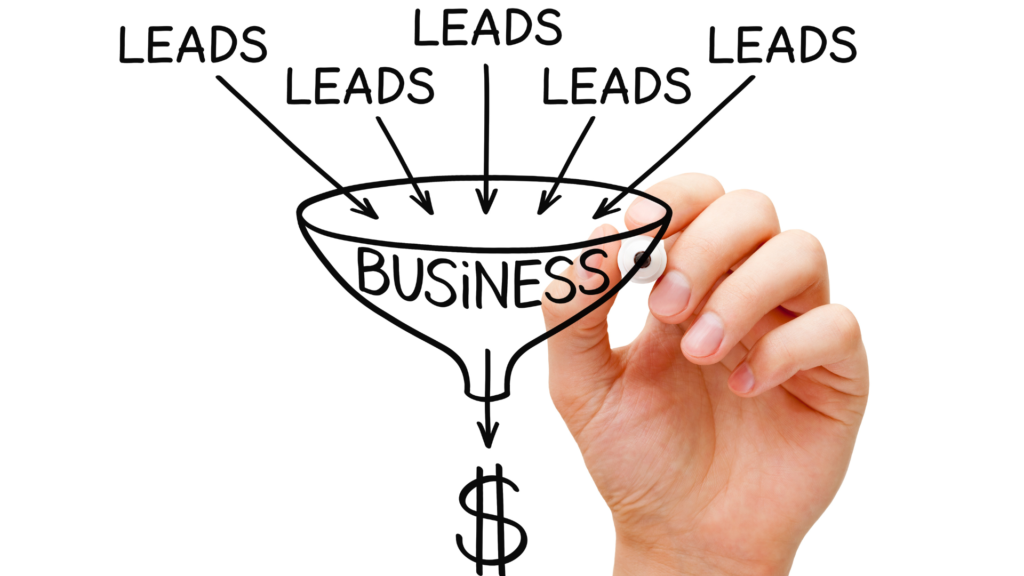Most businesses understand the importance of creating robust website content to develop authority, thought leadership, and trust in their brand.
However, the strategy is much more sophisticated than throwing blogs on your site and hoping a few stick. Content marketing should encompass a diverse strategy to nurture leads from the moment users engage with your brand until they check out on a product page or fill out a lead form (free consultation, newsletter sign-up, etc.).
The ultimate goal is always converting traffic to loyal followers/users of your brand, which is what lead-generation content is all about.
What Is Lead Generation Content?
Lead generation content is designed to increase leads to your website by creating engaging content that appeals directly to a defined buyer persona. Generally, lead generation content is considered top-of-funnel content and is primarily designed to attract leads like a magnet.
Most marketers rely on a marketing funnel, which is simply a visual representation of the steps through which marketers must nurture leads to generate a conversion, otherwise known as the desired action.
Broken down, a sales funnel represents three basic stages, all of which may employ different types of content at each stage to lead to the desired action.
- Awareness: Create awareness for your brand using lead magnet content, such as guides, videos, and podcasts.
- Evaluation: Influence a lead’s purchasing decision using lead-converting content, such as case studies and testimonials.
- Decision-Making: Push that lead toward a conversion by showcasing your products using a webinar, tutorial, video, or free demo.
Furthermore, lead generation content can be employed over various channels that align with your marketing funnel, including search, advertising networks, social media, or email.
Benefits of Lead Generation Content
- Increasing traffic and leads to their website
- Influencing buying decisions
- Displaying authority and expertise
- Providing real-world value to customers
- Describing perceived benefits from your products or services
To better understand lead generation content and how to leverage it properly, let’s explore some examples of lead generation content and outline some tips to leverage content in your sales funnel.
These are split into two categories – lead magnet and lead converting.
11 Types of Lead Generation to Use on Landing Pages
Lead Magnet Content
1. Evergreen Content
Evergreen content is long-form content meant to display topic authority and expertise. Examples of evergreen content include long-form guides, long-form blogs, and anything considered informative that tackles a subject to its fullest. For example, a food blog could create an evergreen guide on “Pickling for Beginners” to generate traffic to its website.
Evergreen content is great for resource pages on a website and can be cobbled together to create a full-length ebook.
2. eBooks
eBooks are digital versions of books that are typically shorter and easier to consume. Think of an ebook as a hybrid between evergreen content and a full-length book. Some ebooks could include training guides/tutorials or general discussions related to topics in your industry. For example, if you create a health ebook, you could combine your blog posts into a full-length book of recipes or discuss the history and benefits of going keto.
3. Videos
Videos hosted on your website, social media, or YouTube are great ways to help people visualize your products or brand. For example, a video recipe on TikTok with a link in the comments to your cooking blog could be a good way to create awareness for your brand.
4. Blogs
Shorter blogs posted on your website, SubStack, Medium, or social media are all great ways to build an audience and awareness for your business. Blogs could deal with endless topics related to your industry and have no set word limit.
5. Podcasts
Nearly 60% of US consumers listen to podcasts somewhat regularly, making them a valuable new medium to build an audience and reach people. Producing or appearing on a podcast to discuss your business is a great way to build awareness, especially with an audience closely connected to its podcast host.
6. Interviews
Finally, interviewing influencers and celebrities is a great way to build awareness and leads for your business.
Lead Converting Content
7. Case Studies
Conversely, case studies don’t act as much as a lead magnet but can be used to showcase your business’s expertise in its particular field. In addition, providing concrete data and results to potential customers can build trust with your brand.
8. Tutorials
Visually showing people how to solve everyday problems or use your products also builds trust and authority, which leads to conversions.
9. Testimonials
Showcasing testimonials on landing pages and contact forms is a great way to provide social proof for your business and display your expertise.
Evaluation Stage Content
10. Webinars
Webinars are a great way to display expertise and educate potential clients on your services and success in the past.
11. Demos/Trials
Free demos or trials can also be used to help leads get a feel of your products and services to see if they like them before making a decision.
5 Tips to Increase Qualified Leads
1. Conduct Careful Keyword Research
To build lead generation content, you must create content that applies directly to your customers. This could include developing informative content that discusses a confusing topic or creating commercial-based ad copy that appeals directly to the buyer’s pain points and demand.
To understand your customers, you’ll need to build a buyer persona. Facebook’s Audience Insights is great for this, but you could also conduct general demographic research.
With a buyer persona in mind, you’ll need to research search trends to understand what terms, products, and solutions they are searching for. Generally, we will separate keywords into two categories based on intent: Commercial and Informative.
Commercial intent is great for building ad and landing page copy that attracts leads over advertising channels. Using Google’s free Keyword Planner, you can search for any term and filter by Top of Page Bid to see which terms are most valuable to competitors.

This strategy will inform you of what keywords tend to convert the most.
You can also consult Google Analytics to see which terms and pages provide the most traffic to your website to focus your strategy on this set of terms.
On the flip side, you can start building out lead magnet content, such as evergreen guides and tutorials, by understanding what questions users are searching. For example, using the filter on Google Keyword Planner, you can input question phrases, such as “what” that illustrate common questions people have about a product.
SEMrush provides more advanced tools to help you find more question phrases and separate them by intent.
Once your research is complete, you must optimize your new content using your advanced keyword research.
Some general on-page SEO tips to improve the searchability of your content include:
- Inserting a target keyword in the Title and Meta Description
- Creating an enticing headline that people click on
- Optimizing your first paragraph with a primary keyword phrase to signal intent
- Satisfying user intent by answering questions with your content
- Using a minimum keyword density of ≥1-2%
- Optimizing all technical factors, such as page speed, alt text, and image resolution, to maximize UX value
- Internally linking to relevant content and citations
- Creating user-friendly and readable content
- Providing a CTA to entice user action or conversion
A technical SEO expert can be a great one-time purchase for a quick audit or to help content rank higher over time.
3. Promote Content Across Marketing Channels
Unfortunately, content won’t market itself, and you’ll have to promote lead magnet content and various channels to give it traction. Strategies include advertising, publishing on social media, or sending content over email to entice current leads in your funnel.
Additionally, link building is a valuable strategy to help build authority for your webpage and help it rank organically. Over time, traffic, conversions, and links should combine to give your content a noticeable organic bump that drives more leads to your site.
4. Build a High-Converting Landing Page
Landing page content can be designed for both lead acquisition and conversion.
Building a high-converting landing page is an art and no easy task. Generally, landing pages should be built with usability in mind, providing easy ways for visitors to navigate your page and make a quick/painless decision.
Some elements of a good landing page include:
- An enticing headline
- An equally powerful secondary headline or H2/H3 tag
- A compelling opening paragraph outlining user pain points
- Data/bullet points supporting the benefits of your product
- Testimonials or visuals of case studies showcasing the effectiveness of your business
- A clearly labeled, enticing, and easy-to-click CTA
Your landing pages could also leverage existing content or videos as assets that appeal to leads.
5. Consult the Data
Finally, you’ll need to consult your analytics and conduct A/B testing to reap the most rewards from your strategy. Testing should encompass everything from landing page copy and headlines to promoting different informational content on various marketing channels.
Tools like Google Analytics and Search Console will provide valuable data, such as click-through rates, dwell time, and page navigation paths, to see which search terms and pages engage leads the most. In addition, several content analysis tools can help you revise your sales funnel with new content or landing pages to improve your conversion ratio.
Lead generation content is a valuable strategy to increase leads, boost conversions, and develop brand loyalty. Regardless of its form, lead generation content should ultimately appeal directly to user needs and be optimized for SEO and UX.
For help developing lead generation content, consider researching white label services or teaming up with a content partner like ContentMender. We offer SEO content marketing services designed to boost leads, convert those leads, and build relationships with your customers.

